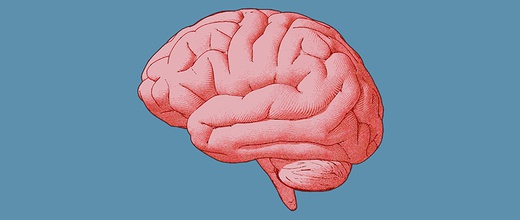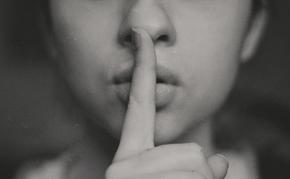The views expressed in our content reflect individual perspectives and do not represent the authoritative views of the Baha'i Faith.
I read a startling statistic the other day—Oregon’s glut of marijuana has resulted in a broader increase in drug usage and few job applicants who can actually pass a drug test!
Along these same lines, and to my dismay, friends and family members who would have once eschewed any involvement with drugs now seem to support the growth of the cannabis industry. It has, after all, become a lucrative business and a source of significant tax revenue.
Granted, there’s the whole “it’s not worse than alcohol” argument, and I do understand the complex pros and cons of legalization. While I have not supported recreational drug use, these conversations did make me wonder if I wasn’t just being too puritanical. I’m proud of having a strong value system, but, in an ultra-liberal age, I’m often accused of being “old-fashioned.”
So, I went to the Baha’i writings to explore what they have to say on the topic. In reality, some of the strongest language in the Baha’i writings forbids drug use, especially opium and hashish. In one tablet, Abdu’l-Baha stated that: “the user, the buyer and the seller [of opium] are all deprived of the bounty and grace of God.” – quoted by the Universal House of Justice in Baha’u’llah’s Most Holy Book, p. 239.
In another passage, this one about hashish—a drug made from cannabis resin—Abdu’l-Baha said:
Regarding hashish you have pointed out that some Persians have become habituated to its use. Gracious God! This is the worst of all intoxicants, and its prohibition is explicitly revealed. Its use causeth the disintegration of thought and the complete torpor of the soul. How could anyone seek the fruit of the infernal tree, and by partaking of it, be led to exemplify the qualities of a monster? How could one use this forbidden drug, and thus deprive himself of the blessings of the All-Merciful? Alcohol consumeth the mind and causeth man to commit acts of absurdity, but this opium, this foul fruit of the infernal tree, and this wicked hashish extinguish the mind, freeze the spirit, petrify the soul, waste the body and leave man frustrated and lost. – Ibid., pp. 238-239.
According to Addiction.Com, “Hashish is a cannabinoid, which means it’s made from cannabis or the marijuana plant. It is a chemical compound that produces the same psychotropic effects as marijuana.” The active ingredient in hashish, and in marijuana, is tetrahydrocannabinol, also known as THC.
While the Baha’i teachings call on Baha’is to abstain from these and other similar habit-forming drugs, their use is not necessarily forbidden when prescribed by a qualified physician as part of a medical treatment plan–to alleviate pain, for example.
For the recreational user though, I doubt many are really thinking about the longer-term consequences of free-for-all marijuana use, particularly the impacts on youth and young adults. A summary of a May 2018 editorial from Judithe Grisel in the Washington Post, for example, notes the following:
Teens who smoke weed regularly, studies show, have reduced activity in brain circuits critical to noticing new information and making decisions; they are 60 percent less likely to graduate from high school, “are at substantially increased risk for heroin addiction and alcoholism,” and are seven times more likely to attempt suicide. Recent studies even show that THC can turn on or off genetic expression in a teenager’s epigenome, making young users’ children “at increased risk for mental illness and addiction” years before they are conceived.
More broadly, if we don’t want yet another generation of addicts, helping young people decide not to use drugs might be a place to start. Encouraging young people to experiment with mind-altering substances can start them down a path of no return, especially those who are genetically predisposed to become addicts. As a 2017 article on BahaiTeachings.org about opioid addictions noted, 90% of all drug addictions start in the teens.
Prevention efforts are critical. Growing up in the Baha’i Faith, I was taught to avoid this route at all costs. Besides the directives noted above, my parents set a good example, and would have killed me (figuratively speaking) if I had started taking drugs. I don’t have children of my own, but I expect that many young people today are growing up with different messages, which reflect the lax attitudes in the media about drug use and watching their parents abusing alcohol, taking opioids (now at epidemic proportions in the U.S.), or smoking weed. It can become the only solution they know.
Harsh circumstances or traumatic life events can set some young people down this path. But, if they have strong role models or, more fundamentally, a higher purpose in life, it’s less likely they will get sucked into the escapist world of drugs:
All men have been created to carry forward an ever-advancing civilization. The Almighty beareth Me witness: To act like the beasts of the field is unworthy of man. Those virtues that befit his dignity are forbearance, mercy, compassion and loving-kindness towards all the peoples and kindreds of the earth. – Baha’u’llah, Gleanings from the Writings of Baha’u’llah, p. 215.
We are, in other words, destined for far greater things then getting involved with drugs and mindless entertainment. Many realize that drugs will never quench the deeper thirst–and longings for connection, love and meaning–that may be missing from their lives. The Baha’i writings repeatedly call humanity to reclaim this lost spiritual heritage:
Become ye intoxicated with the wine of the love of God, and not with that which deadeneth your minds, O ye that adore Him. – Baha’u’llah, quoted by Shoghi Effendi in The Advent of Divine Justice, p. 33.
You May Also Like
Comments

















Still, the intent of my article was to take a closer look at what the Baha'i writings say on this issue. The position on recreational drug use is very clear. I'd like to see a day when young people are aspiring to excellence in education vs. becoming a "nation of potheads" as James notes. I think countries like the U.S. will begin to see the detrimental consequences if we opt to go down the latter path. But, ...as I and other commenters have noted, such drug use is also a symptom of deeper societal problems. Tackling these is where unity of purpose can happen.
There are issues around consuming cannabis but when you look at the rate of fatalities at the CDC and in police statistics you don't find much, so enough with the “Reefer Madness” nonsense folks!
If alcoholic beverages and tobacco products are legal then cannabis should be legal too based on the fact that it is much safer to consume.
All the data needed for a decision on legalization can be found at the Center for Disease Control where comparative ...analysis proves beyond doubt that cannabis is much safer than alcoholic beverages and tobacco products.